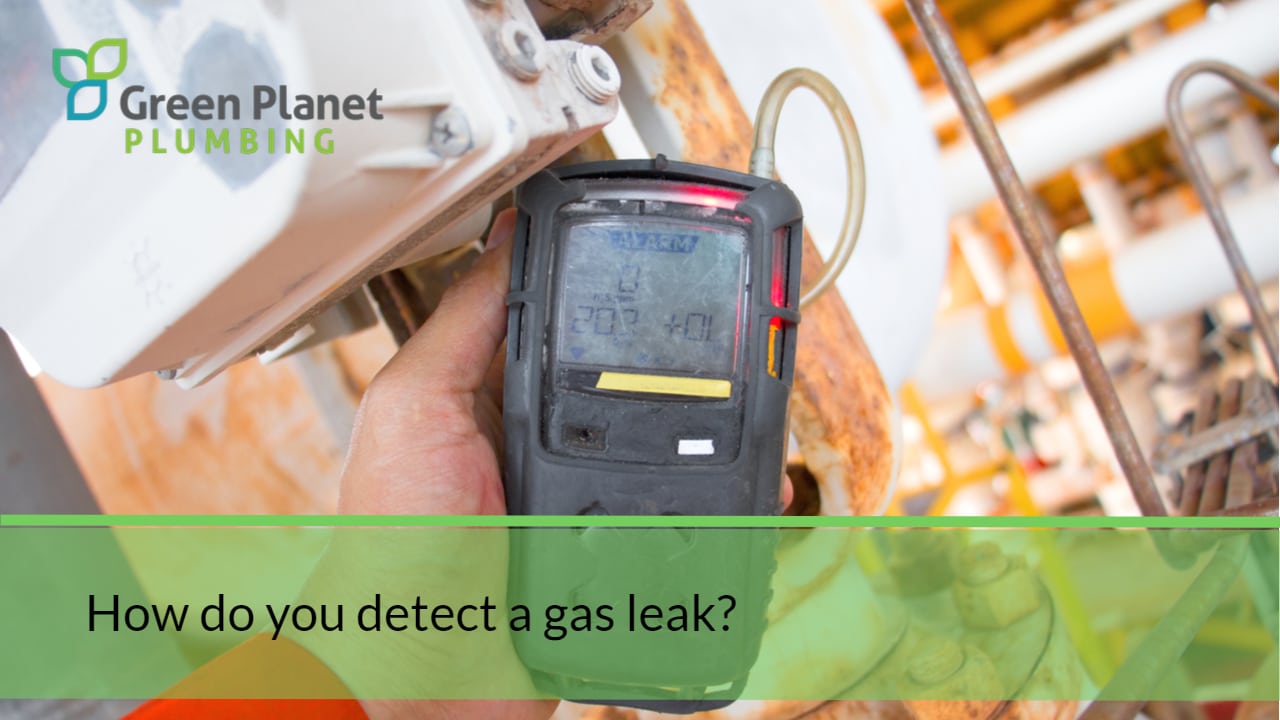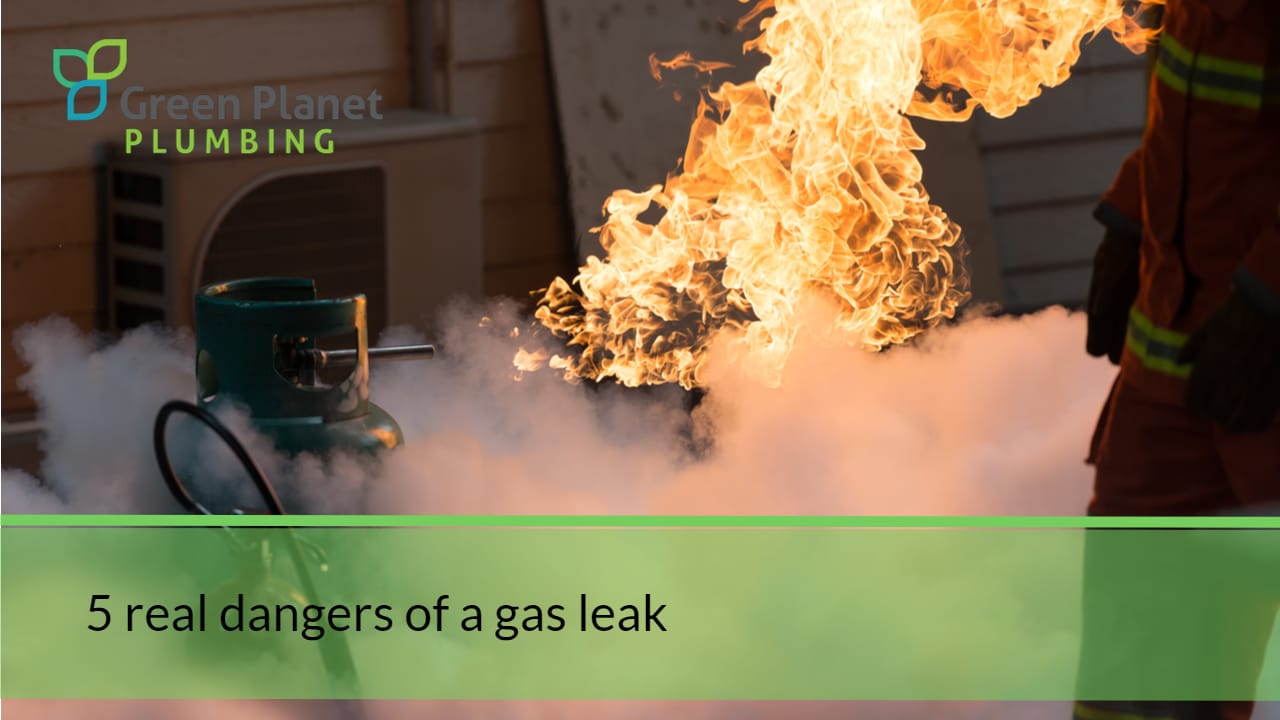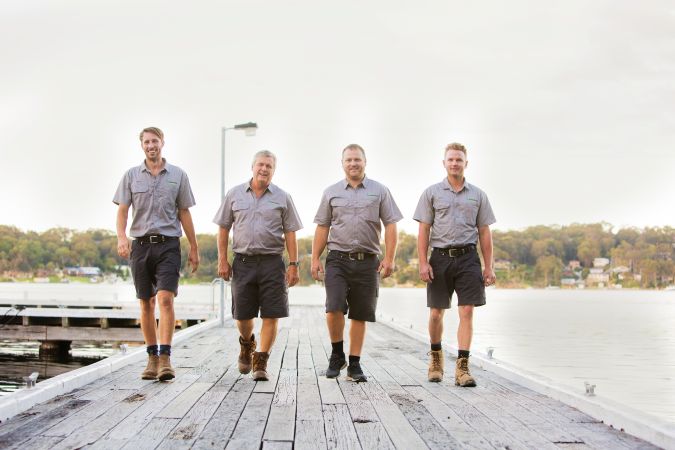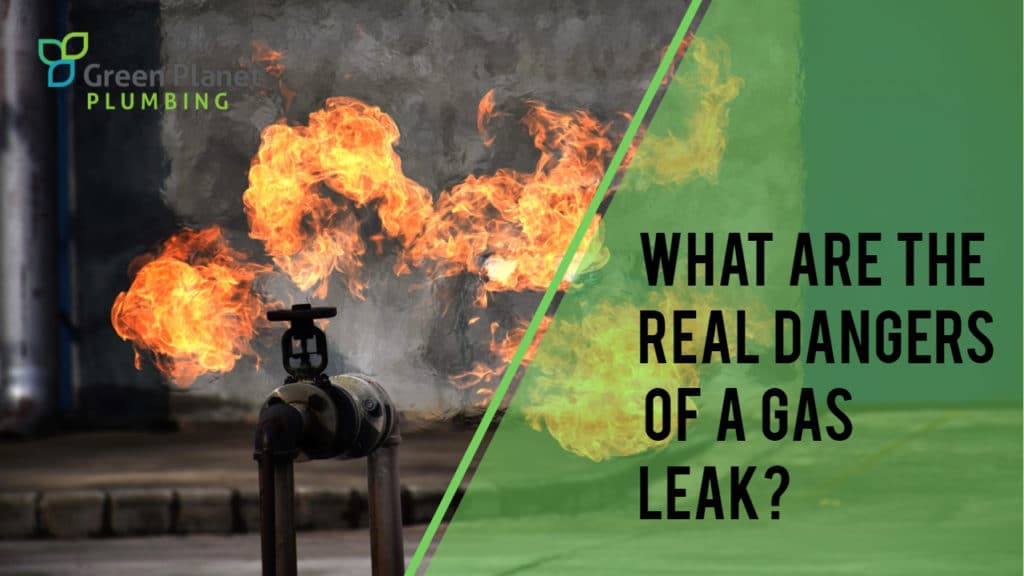A gas leak occurs when natural gas leaks out from a pipeline or your gas appliances at home. It can happen when a pipe is damaged, or when your gas appliances at home, usually older ones, cause a gas leak. It can happen anytime and anywhere you have gas appliances.
The dangers of a gas leak may increase when you personally install your gas appliances. To minimise the risk, you should hire the services of a gas plumber. In Australia, you must hire only the services of a professional and licensed plumber to install your gas appliances. Failing to do this can endanger not only your life and your household but your entire community. As a homeowner, it is your responsibility to have your gas appliances appropriately installed by professionals.
Professional gas plumbers are equipped with the knowledge and technology to install and fit devices properly. Ill-fitted and improperly installed appliances can result in gas leaks, which can cause you more than an inconvenience.
When dealing with a problem such as a gas leak, it’s best to contact a professional. Trying to resolve a gas leak issue on your own can potentially worsen the situation and can lead to problems such as fires, explosions, or poisoning. Should you detect a gas leak in your house, contact a licensed plumber right away who can help you fix the problem. The plumber you hire must be licensed and must belong to a trusted professional plumbing company.
What is natural gas?
Natural gas is naturally occurring and is composed mainly of hydrocarbon gases. Its main component is methane but also has a small component of carbon dioxide. Also called fossil gas, natural gas is lighter than other gases, which makes it more volatile and easier to dissipate.
Natural gas, a non-renewable energy source, is highly combustible. Thus, it’s the preferred type of gas as an energy source, especially in houses. A naturally occurring gas, this energy source can be found in rock formations and coal beds and is a product of both biogenic and thermogenic processes.
Biogenic gas results when methanogenic organisms produce methane by breaking down organic matter usually found underground. On the other hand, thermogenic gas is produced underneath rock formations. It is not produced by living organisms but by intense heat and pressure. Thermogenic gas can also come from buried organic material.
The extraction of natural gas is called fracking. This process, which was developed in 1862 from the ideas of Colonel Edward A.L Roberts, forces the release of natural gas from rock formations. Fracking became a predominant practice in the 1940s, where liquid was blasted through rocks with the use of explosives. Fracking works by drilling a vertical well into the earth’s surface, then horizontally to establish new pathways that can facilitate the release of gas. With high pressure, a combination of chemicals, water, and sand is drilled into the earth to force the gas out.

Uses of natural gas
Natural gas is used widely in the industrial, transportation, commercial, residential, and electrical sectors. In our homes, natural gas enables us to cook, heat our houses, do our laundry, light our rooms, and basically, have electricity in our everyday lives.
Australia is teeming with natural gas. The country has an estimated 3,921 billion cubic meters (bcm) of natural gas reserves.
A widely used fuel, natural gas has been used in Australia for more than a century. Studies found that natural gas makes up over 17% of energy use in Australia. This is projected to rise to 24% in 2020. It is predominantly delivered in Australian homes through 23,000 kilometres of underground pipelines. Natural gas is said to have the lowest carbon emissions among fossil fuels, making it a ‘cleaner’ and more environmentally friendly option. Because it is lighter, it is safer to use than other fuels.
As one of the cheaper energy sources in the market, natural gas is also a preferred source of energy in Australian homes. Gas appliances are common in Australian homes, particularly stoves, heating and cooling systems, showers, outdoor fire pits, and patio heaters, among others.
What is a gas leak?
Although gas appliances are convenient to use, they pose a risk if not installed properly. A gas leak, although a rare occurrence, occurs when a gas appliance is not fitted properly. It’s certainly something that you should address the moment that you suspect it in your house.
A gas leak usually occurs in old or damaged pipelines, which can happen when the pipeline ages or in the event of a natural disaster like an earthquake or storm. They can also occur in pipes underneath the ground. Take preventive measures such as having your appliances checked and maintained from time to time and having all your gas appliances installed only by licensed gas plumbers.

How do you detect a gas leak?
Because it is often odourless, it can be challenging to recognise when gas is leaking. However, there are ways to make it easier to detect.
Chemicals such as mercaptans, which have the odour of rotting eggs, are usually added to help detect a gas leak. Another sign is your appliances emitting a hissing or roaring sound. The moment you sense that your gas appliance is leaking, inspect it immediately and make sure that there is no source of spark or fire in its vicinity.
In your home, it is crucial to be vigilant in the event of a gas leak. One of the signs of a gas leak is when the flame of your stove turns orange instead of its usual blue. You can also observe signs on the gas line, such as a white cloud or the smell of rotting eggs. There may also be a gas leak if your electricity bill suddenly shoots up.
Any time a gas leak occurs, it’s best to address the issue immediately as it can cause extreme danger when left for long. Gas leaks are dangerous because they can happen slowly and are often undetected for an extended period. Because gas leaks often go undetected, they become a major health and environmental hazard.
What to do during a gas leak
When you suspect a gas leak in your house, you must be alert and act immediately. First, open all windows and doors to let in outside air. Remember that a natural gas leak, when inhaled, can be fatal. Don’t turn on your electrical appliances, smoke, or light a match in the vicinity.
Also, make sure that you put your pets outside to breathe fresh air as they are more susceptible to natural gas poisoning. Next, shut off your gas supply immediately. Leave your house immediately and call for help immediately, advise your gas supplier that there is an issue and then contact your licensed gas plumber to address the problem.

5 real dangers of a gas leak
The dangers of a gas leak can range from minor disturbances to injuries and even death. Here are the potential dangers from any gas leak.
1. Natural gas leaks can cause fires and explosions
Natural gas becomes dangerous when combined with flammable substances. Since it is odourless and dissipates into the air easily, it can be a source of potential danger. When natural gas comes into contact with any spark from appliances in your home, it can cause a fire or explosion.
2. They can be dangerous to your health.
Even when a gas leak is minor, the gas can accumulate over time. It can pollute the air that you breathe especially in confined areas such as your home or office. When natural gas leaks is it reduces the amount of oxygen in the air. This consequently leads to difficulty in breathing.
Moreover, when inhaled, natural gas can cause nausea, fatigue, dizziness, and headaches. If inhaled in high volumes, it can cause loss of consciousness, coordination problems, loss of memory, and extreme fatigue. It can also cause poisoning, nose bleeds, flatulence, depression, and flu-like symptoms.
Another potential danger of a gas leak is carbon monoxide poisoning. Carbon monoxide is the by-product of natural gas that does not combust completely. When carbon monoxide accumulates in the bloodstream, it displaces the oxygen in your blood, leading to tissue damage. Carbon monoxide poisoning is the most common type of inhaled poisoning, because the gas is very hard to detect and fatal at low concentrations.
3. It can destroy plants and vegetation.
When natural gas leaks to plants and other vegetation through the soil, it can result in chlorosis, a condition wherein plants lose their colour. Eventually, it can lead to necrosis, which is the death of plant cells. You will observe it when your plants dry up in a short period due to root asphyxiation, which happens when the plant is deprived of oxygen.
4. It can be fatal to animals.
When gas appliances leak and emit natural gas, it can result in carbon monoxide poisoning in animals. Due to their smaller size, your household pets can quickly succumb to carbon monoxide poisoning. Gas leaks affect animals the same way they affect humans. When your pet becomes unusually weak or lethargic, it can be a sign of a gas leak.
Your pet may also experience difficulty breathing and suffocation. Vomiting and seizures can follow this. When you see your pet experience these different symptoms, it’s best to check your appliances for a gas leak. Also, make sure to transport your pet and your family outside your home safely.
5. It is harmful to the environment.
Methane, a major component of natural gas, is a greenhouse gas. Greenhouse gases absorb infrared radiation coming from the surface of the earth. When methane leaks into the atmosphere through faulty and damaged pipelines, it contributes to the warming of the atmosphere.
The effect of methane is more harmful to the environment than carbon dioxide. Although methane is a short-lived greenhouse gas, it is 100 times more damaging to the atmosphere than carbon dioxide because it is more potent. Additionally, it absorbs more energy from the environment and contributes to global warming, which is a pressing and dangerous environmental problem.
The impact of methane to the environment worsens because of what happened in the earth’s history. Millions of years ago, when methane solidified under the ocean due to high pressure, it became a large deposit of methane hydrate. Methane hydrate, when released from the ocean bed to the environment, can contribute to global warming significantly.
Global warming causes heat waves, devastating amounts of rainfall, droughts, water shortages, and wildfires. It is also melting glaciers, which can release pollutants into the air. It has a devastating effect on the coastal ecosystem. Melting glaciers releases organic pollutants into glacial rivers. When these contaminated glacial waters come into contact with the environment, they can produce catastrophic environmental disasters.

Contact Green Planet Plumbing in Newcastle, Lake Macquarie, and Hunter Valley
Damaged pipelines can pose a hazard to your home and the environment. Do not ignore the problem of gas leaks. Hire the services of experienced and professional plumbers from Green Planet Plumbing. Our plumbers are licensed and fully insured, and they can help with gas plumbing, pipe relining, roofing repairs, bathroom renovations, and water heater repairs.
Green Planet Plumbing are experts at delivering gas installation services and pipe relining. Our team practices environment-friendly plumbing services, so you can be sure that while we make your home safe for you and your family, we do so in an environmentally safe manner.
If you sense a gas leak problem in your home, do not address the problem on your own. Contact Green Planet Plumbing any time at 1300 GP PLUMBING or 02 4911 9402. You may also send your enquiry to hello@greenplanetplumbing.com.au.

